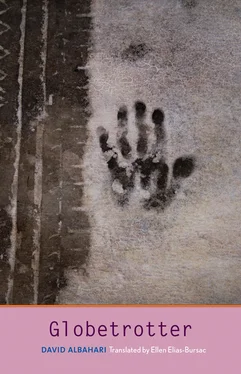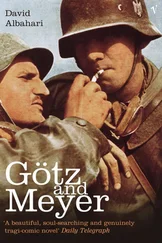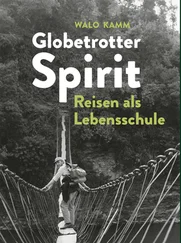He had the book here, he said, but though he searched everywhere, he couldn’t put his hand on it to show us, which was not surprising in light of the chaos that reigned in his office, but what was most interesting, he said, was that only ten days or so ago, he had gone through everything, he said, that they had in the archive about Ivan Matulić, and even went, he said, to the Museum of Natural History to photograph the page in the guest book on which one could read quite nicely, though it was slightly smudged, the man’s ornate signature. And whence, asked Daniel Atijas, this sudden interest in the Croatian globetrotter? Guy Fletcher said he wasn’t interested for his own sake, but had received a call from a man who had introduced himself as Ivan Matulić’s grandson and asked to see what there was about his grandfather in the museum archive. Guy couldn’t remember the man’s name, but somewhere, he said, he had jotted it down, and now he had no idea where to look. From the man, he said, he had learned of the book, and he had asked him for a copy, which the man, the grandson, had immediately agreed to provide, for Guy Fletcher had the impression from the story that Ivan Matulić was one of those eccentrics who had contributed to the prestige that Banff enjoyed today.
People, he said, did not come to Banff to be what they were but what they were not; they came to be different, something they could not be wherever they were when they were not in Banff; and by all accounts, he said, this Croatian globetrotter was, indeed, something in Banff that he had not been elsewhere, for Guy had gathered not only from the photograph in the slim volume that had been published years before in Croatia but also from what he had heard from the grandson when he finally brought in the book. Daniel Atijas made no effort to conceal his surprise. This man, he said, this grandson, came all the way from Zagreb just to bring you a copy of his grandfather’s book? Why all the way from Zagreb? asked Guy, surprised. Whatever gave him that idea, and why would Ivan Matulić’s grandson be coming here from Zagreb anyway? It turned out that the grandson lived in Calgary, where he had been born and where Ivan Matulić had shown up at some point in 1951—or perhaps a year later, as remained to be seen — said Guy, and he could easily ascertain the year had he only a little more time available, two heads, and six extra hands. The grandson’s father, he said, meaning Ivan Matulić’s son, came with him, or perhaps arrived a year or so thereafter, which also remained to be seen, but for that he’d need a third head, and an extra pair of legs would not be remiss. The whole story was complicated, he said, or at least so it seemed when the grandson tried to tell it, and he was sure of none of it, except that the first time the grandson came, the grandson never looked him in the eye, which says a lot more about a person than all the words he does or does not say.
A person who averts his eyes, said Guy, fears disclosing something he carries within him, or, even more often, he fears the possibility that his eyes will give easy access to his soul. Here I had to jump in because I knew Fletcher well, and I knew that his eyes were always open wide for anyone interested in a guided tour of his soul, and there was a good chance that he would draw Daniel Atijas into an endless tale of how the plane of Guy Fletcher’s soul and the plane of Banff converged, regardless of what or whom he was talking about. We’re running late, I said to Guy. Gotta go. Daniel Atijas did not hide his displeasure. I was not aware that we were keeping to a set schedule, he said once we were outside again on Bear Street. The sun was high in the sky and the shadows very short, but long enough to hide his eyes, sunken deep under his brows. He struck me as the type who doesn’t hold a grudge, but nevertheless I didn’t dare risk it, or rather I wasn’t willing to risk it, so I went back to ask Guy Fletcher to make an effort to retrieve the scrap of paper on which he’d written the name and telephone number of Ivan Matulić’s grandson and to let us know immediately once he had. I left him our room numbers at the Banff Centre, and stuck a Post-it note with our numbers to the monitor of his computer. Daniel Atijas was waiting for me in front of the museum. Had I known how much his silence would hurt me, I never would have interrupted Guy’s story, but it was too late now, and all I could do was to walk in silence next to him and hope we wouldn’t run into anyone from the Centre, because that, I thought, I would not survive.
Clouds hurried across the sky, and the two of us hurried through a town where nobody hurries, not the people or the cars or even the Japanese tourists. Everything is slow in Banff; at times it is all like a slow-motion movie. Perhaps it is the altitude; or maybe the rarefied air or the cramped space gives an illusion of size when one is moving slowly through it, so our amble, whether we wanted it to or not, wouldn’t last long. Daniel Atijas was soon out of breath, and his lips were parched. He wouldn’t want me to think, he told me later when we got back to the Centre, that he was angry at me, because such a thing hadn’t occurred to him, and if he was angry at anyone, he was peeved at himself, at his inability to wrench free of the sticky tentacles of history, to elude their foul stench, for history, he said, always manifests itself as a stink that becomes noxious in the places where the sedimentation of history is great, and no amount of excavating, either real or spiritual, could get rid of it. This was how he had been living, he said, for the past dozen years, from the moment hostilities erupted in his country and history was flung in everybody’s face like a cream pie. No matter how many times he wiped his face clean, he said, something sticky was left; it was as if, he said, everyone could see the stain, even here, thousands of miles from the frenzied mob. There is, however, something even worse than spreading stench, I said to calm him, and that is the places where there is a lack of history. I had America, of course, and Canada, in mind; where we were, I said, in Alberta, white men showed up less than two hundred and fifty years ago, and the first thing they did was to erase the existing history, to turn the fullness into a void, and then, or so they imagined, to impose their own history, but the wound, I said, the wound of that void, had never healed, and therefore their pathetic history, pathetic compared to the one they had destroyed, went on forever in a vacuum with no support, no underpinnings, and one day, of this I was convinced, I said, their history would sink back into that earlier history without a trace, without a sound, as if it had never been here at all.
Daniel Atijas replied that he liked that image of cataclysm in which, if he had understood me correctly, the wellspring of the new world order would morph into an underground river, but he doubted that such changes could take place over a short period of time. We were sitting on the terrace by his room, looking out into the night. And besides, what we know, he said, we know only in part; something always eludes us — the impact of a detail or the meaning of the whole, whatever — there is always something missing, and as the years went by, he said, he was more and more inclined to think that the image of Sisyphus pushing that boulder to the top of the hill in vain was the most apt way to show the pointlessness of human existence. What could I say? I told him I was a painter, not a philosopher, and that I saw the world as a delicate play of color and volume, and that I further believed that each of us was seeking something that would allow full appreciation of this give-and-take and thereby, ultimately, an understanding of the world. I fell silent, waiting for him to ask me the inevitable question, and when he finally did ask what I was after, I did not hesitate.
Читать дальше







![David Jagusson - Fesselspiele mit Meister David [Hardcore BDSM]](/books/486693/david-jagusson-fesselspiele-mit-meister-david-har-thumb.webp)




